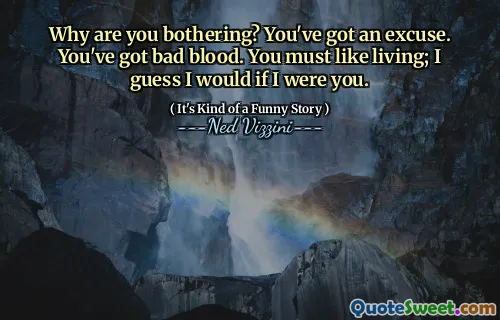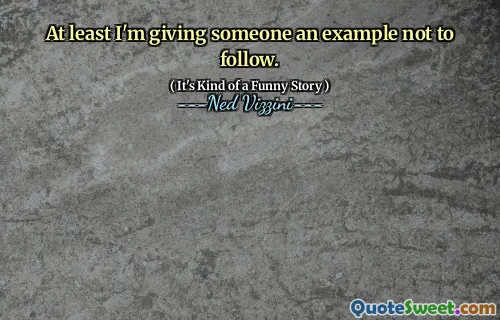
And I could have died right then. And considering how things went, I really should have.
This quote encapsulates a moment of intense reflection and perhaps regret or realization. It suggests that the narrator was at a critical juncture, teetering on the edge of danger or loss, and yet, somehow, survived what might have been a fatal event. The phrase resonates with the universal human experience of confronting mortality and the unpredictability of our circumstances. When someone states 'I really should have,' it implies a sense of guilt or questioning about the choices or luck that led to their survival. In the context of the book '(It's Kind of a Funny Story)' by Ned Vizzini, this introspection is often tied to a deeper understanding of oneself, mental health struggles, and moments of near-crisis that serve as turning points toward self-awareness and change. Surviving such moments can evoke a mix of relief, guilt, or even anger for having come so close to an end. It also brings forward the idea that life is fragile, and sometimes it takes a brush with death to truly appreciate or reconsider our path. The acknowledgment of this near-death experience pushes the narrator to reflect on the events that transpired, perhaps questioning if he is living authentically or recklessly. These moments can serve as catalysts for growth, prompting individuals to reevaluate their values, relationships, and priorities. It's a reminder that life contains moments that hold more weight than we often realize in the heat of the moment. The quote, therefore, not only describes a nearly tragic event but also invites deeper contemplation on the randomness of survival and the importance of living consciously.











